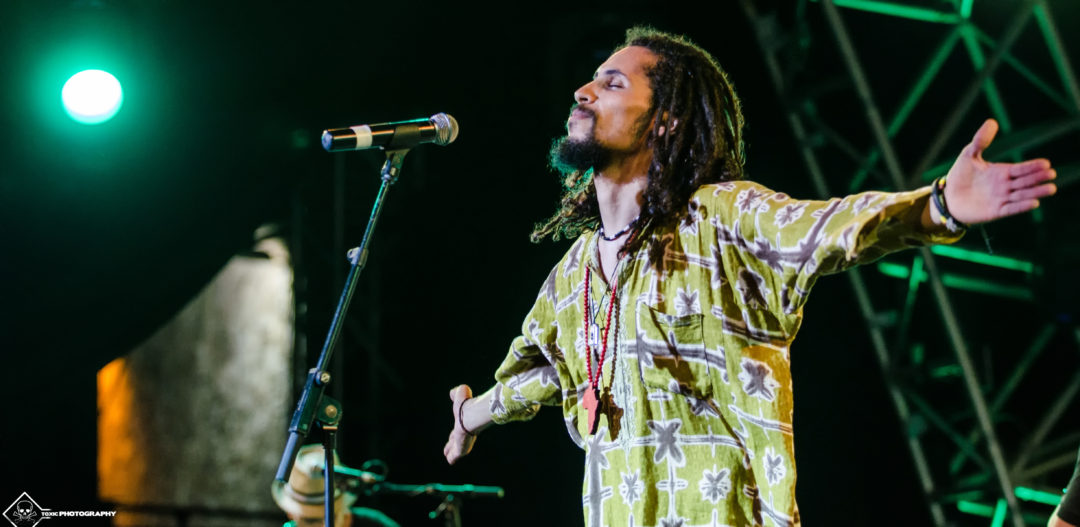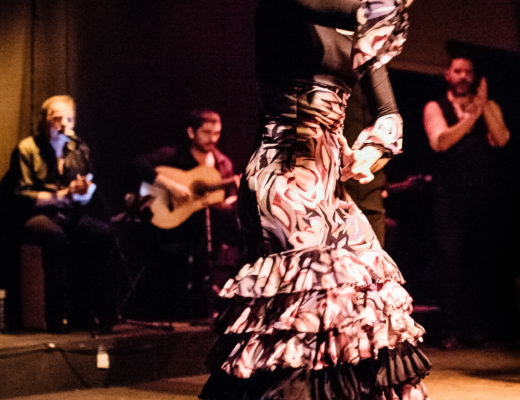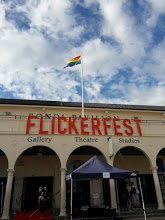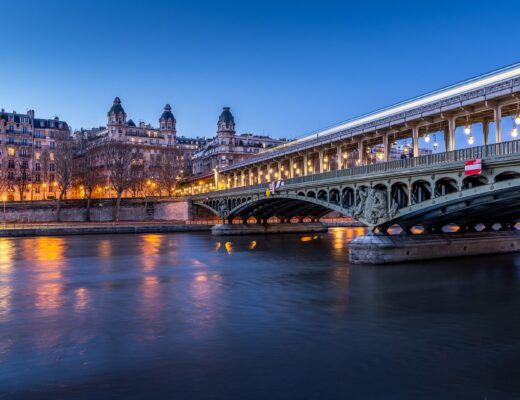The Algerian musical group ‘Democratoz’ releases new album ‘Mazel’ with New York label Rufftone Records
Le groupe musical algérien ‘Democratoz’ lance son nouvel album ‘Mazel avec le label new-yorkais Rufftone Records
Hopes for equality and encouragements for peaceful change in Algeria and around the world are the main themes of the brand new Democratoz album, now available globally. The feel? A unique mix of reggae, dub, North and West African, traditional Algerian, rock and blues.
Les espoirs d’égalité et les encouragements à un changement pacifique en Algérie et dans le monde entier sont les principaux thèmes de l’album Democratoz désormais disponible dans le monde entier. La sensation? Un mélange unique de reggae, dub, nord et ouest-africain, algérien traditionnel, rock et blues.
I had the chance to meet and jam with frontman Sadek Bouzinou at his home in Oran in 2015 (read my story for Get Lost Magazine here). I kept in touch and was thrilled to be invited to join him for a moment on stage in Algiers in 2019. Sadek is an extremely generous artist and an inspiration to both his fans and his peers. In this Ruby TV exclusive, he reveals how, and why, he created this album and shares his hopes for it… and for the future of Algeria.
J’ai eu la chance de rencontrer le leader Sadek Bouzinou chez lui à Oran en 2015 (lire mon article pour Get Lost Magazine ici). Je suis resté en contact et j’ai été ravi d’être invité à le rejoindre un moment sur scène à Alger en 2019. Sadek est un artiste extrêmement généreux et une inspiration pour ses fans et ses pairs. Dans cette exclusivité RUBY TV, il révèle comment et pourquoi il a crée cet album qui partage ses espoirs pour lui et pour l’avenir de l’ Algérie.
Congratulations on the album! Can you choose two of your favourite songs and tell us what they’re about both literally and metaphorically?
Mazel and El Mahbouss are really important to hear and understand. Mazel is a magical song. I wrote it a decade ago, in 2010. It’s a hymn of hope. In this song I talk about the history of the Algerian people of the past, the present and the future. Algeria has experienced many difficult moments which have contributed to our delay in progress in comparison to other strong countries. I talk about the the ‘black decade’ [the horrific 1990s civil war between the government and extremist rebel groups], the egoism of our leaders, of injustice, poverty, inequality, favouritism, exodus, the weakness of our politicians against foreign powers… the most important part of the song, in the chorus, says that there are men and women who can change the history of this country- they are the examples that we need to follow.
Félicitations pour l’album! Peux tu choisir deux de tes chansons préférées et nous dire ce qu’elles évoquent littéralement et métaphoriquement ?
Je pense que Mazel et El Mahbouss sont vraiment importants à écouter et à comprendre. Mazel est une chanson magique. C’est une chanson que j’ai écrite en fin 2010. C’est un hymne d’espoir. Dans cette chanson je parle de l’histoire du peuple algérien, du passé du présent et de l’avenir. L’Algérie a vécu des moments très difficiles qui ont contribué à notre retard par rapport a d’autres pays forts et souverains. Je parle de la décennie noire, de l’égoïsme de nos dirigeants, l’injustice, la pauvreté, l’égalité des chances, le favoritisme, l’exode, la faiblesse de nos politiciens devons un pouvoir étranger. Bien-sûr, le plus important est dit dans le refrain: il y’a encore des personnes, hommes et femmes, qui peuvent changer l’histoire de ce pays. C’est eux les vrais exemples qu’on doit suivre et multiplier.
El Mahbouss means The Prisoner. This song tells a true story. It’s the story of a young boy who finds himself in prison. The world of his friends and family is turned upside down. In prison, he suffers and learns how to be stronger, rougher and more cunning. He makes friends with criminals which leads his life into a new direction, full of misfortune. In the song, I’m his big brother. I’m the only one who visits him in prison because the rest of the family believes he chose the path that led to prison and have abandoned him. This boy represents the majority of young criminals who because of injustices actually become serious criminals. It talks of these rebellious children seeking revenge from a system, and of the society that judges them without understanding the root of their real problems. In this song I pray for this once intelligent and vibrant boy to be able to get out of prison- not just the literal prison but the internal prison that only he himself, or god, can destroy.
El Mahbouss veux dire Le Prisonnier. Cette chanson parle d’une histoire vraie. Une histoire d’un jeune garçon qui, sans qu’il le souhaite, se retrouve en prison. Toute la vie de son entourage va être bouleversé. En prison il va souffrir et apprendre être plus fort et plus rusé, il va se faire des amis, des amis criminels avec lesquels il va tracer un autre chemin plein de malheur. Dans la chanson je suis le grand frère. Le seul qui vient le visiter parce que cette fois si il est en prison c’est parce qu’il a choisi d’être en prison, c’est pour cela que le reste de sa famille l’a abandonné. Ce garçon incarne la vie de la majorité des jeunes criminels qui sont par la faute de l’injustice devenu des vrais criminels. Des enfants rebels qui ne veulent que se venger contre ce système et cette société qui juge sans comprendre pourquoi ni comment. Dans cette chanson je prie pour que ce garçon qui était un enfant très intelligent et plein vie, sorte de sa prison, pas la prison qu’on connait tous mais la prison que seul lui même ou dieu pourra la détruire.
The cover is fun/ interesting! Can you decode it for us?
The cover is essential for understanding the essence of this album. We see a woman wearing a ‘hayek’- a traditionally Algerian outfit that covers the whole body of the woman, similar to a burqa, except that it’s white. This outfit was very popular during the Algerian War of Independence (1954 to 1962)- but the Algerian women didn’t wear it because they were in submission- no, it was a way to protect themselves against rape from the French soldiers in the colonial army, many of whom were ex prisoners. The hayek was also an efficient way to smuggle guns into the casbah, hence the name of the Kalashnikov style, where the woman showed one hand and a peak of her leg to distract the soldiers in the checkpoints and held the Kalashnikov with the second hand to transport it to the other end.
‘Un Seul heros le peple’- ‘a solo hero(s)- the people’ was inspired by a legendary photo taken in the casbah at the end of the Colonial period by an unknown photographer. In the photo, a woman and two children walk past a wall where these words are written.
We included this woman as she symbolises force and courage. A woman who comes from another planet. Behind is a photo taken 22nd February 2019 by Achraf Tello, the photographer from Oran. This photo represents the endless fight of our people. If you compare this photo with a photo from 1954 you will notice that nothing but the date has changed. We chose this to show the fragility of this fight which risks failing- like thousands of victories that have been stolen from us. The colours represent hope and the earth- the yellow, an ochre yellow and the green, the colour of a wild grass that grows despite the conditions.

La couverture de l’album est intéressante, peux tu nous la décoder ?
La cover est très importante pour comprendre l’essence de cet album. On voit une femme en “Hayek” une tenue traditionnelle algérienne qui couvre tout le corps de la femme comme une Bourka sauf que c’est en blanc. Cette pièce de tissu était une tenue très répandue dans la guerre de la révolution, les femmes algériennes ne portait pas cette tenue parce qu’elles était des femmes soumises- non, c’était une façon de se protéger contre les soldats français, comme beaucoup de soldats français était des violeurs et anciens criminels prisonniers engagés dans l’armée coloniale. En plus de ça cette tenue était une cachette efficace de transport des armes à l’intérieur de la casbah, d’où la dénomination du style Kalachnikov, où la femme ne montre qu’une main et une partie de sa jambe pour déstabiliser les militaires dans les barrages de contrôle et tient la Kalachnikov avec la deuxième main pour le transporter à l’autre bout.
Il faut mentionner que “UN SEUL HEROS LE PEUPLE” est inspiré d’une photo légendaire prise à la casbah à la fin de l’époque coloniale par un photographe inconnu. Dans cette photo on voit une femme et deux enfants qui marche a côté d’un mur où c’était écrit” UN SEUL HEROS LE PEUPLE “.
On a mis cette femme parce qu’elle symbolise la force et le courage, une femme qui vient d’une autre planète. En arrière-plan on a pris une photo prise le 22 février 2019 par le photographe Achraf Tello à Oran, une photo qui représente le combat interminable de notre peuple. Si vous comparez cette photo à une photo prise en 1954 vous verrez que rien n’a changé sauf la date. On a choisi le carton pour montrer la fragilité de ce combat qui risque encore d’échouer comme les milliers de combats qu’ils nous ont volé. Les couleurs sont les couleurs de l’espoir et de la terre le jaune le jaune ocre et le vert couleur d’une herbe sauvage qui pousse malgré tout.
Tell me a little about the process of writing the songs- how did you work as a band from concept to completion?
I only write when I’m inspired. Sometimes I write a whole song on the spot- for example in the case of the song Mazel. For other songs, I write a chorus and I leave it aside and only continue when inspired again- because I don’t like to force this. The musicians always trust me with this process.
Parles moi un peu du processus d’écriture des chansons – comment travaillez vous en tant que groupe, du concept à la réalisation ?
Pour les chansons, j’écris quand je suis inspiré. Des fois j’écris sans arrêter, comme dans le cas de la chanson ‘Mazel’, et pour d’autres chansons des fois j’écris un refrain et je laisse a côté seulement si je suis inspiré je continue. Parce que j’aime pas forcer. Pour ce côté la les musiciens m’ont toujours fait confiance.
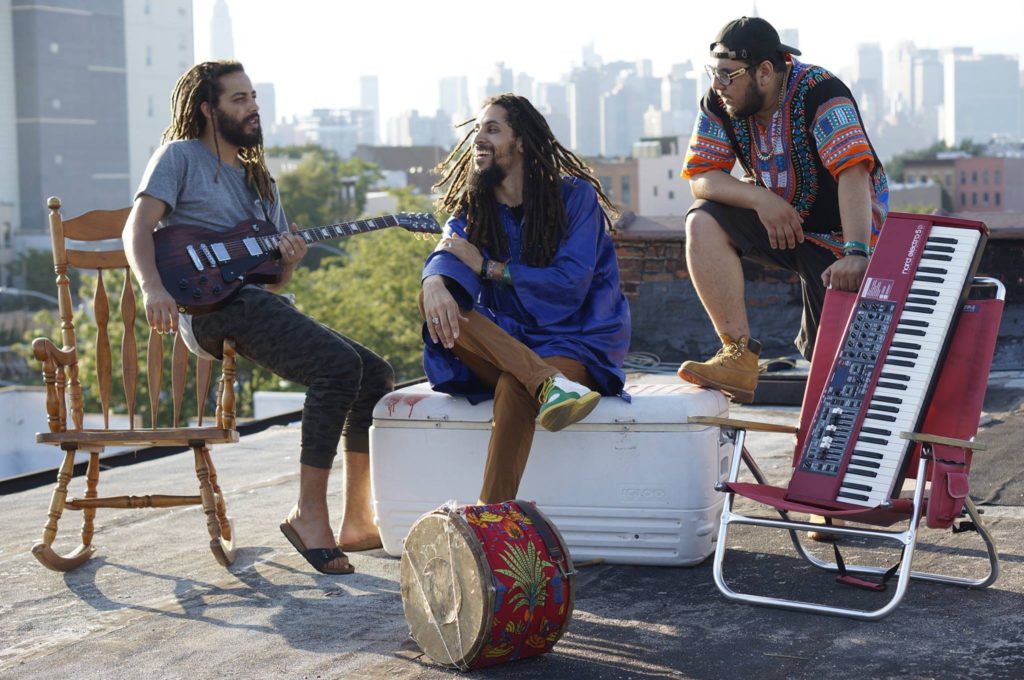
And the recording process?
It would be difficult to retrace all the recording process as it was very complex- but interesting because we found ourselves recording at our own studio DugaDuga (which means Step by Step) via Tizi Ouzzou, Oran , Paris and back in Oran.
Et le processus de l’enregistrement ?
Ca va être très compliqué de retracer tout le process d’enregistrement tellement c’était très complexe mais intéressant, parce que finalement on c’est retrouvé chez nous, notre propre studio DugaDuga (qui veut dire step by step) en passant par Tizi Ouzzou, et Oran, et de Paris à Oran.
Can you name five of your musical influences throughout the ages?
Othmane Bally as my favourite Algerian folk musician, Cheb Hasni as my favourite Rai singer, 2pac, Bob Marley, Ali Farka Touré, Fella Kuti…
Peux tu me donner 5 noms de tes influences musicales, à travers les âges ?
Othmane Bally comme mon musicien folk algérien préféré, Cheb Hasni comme mon chanteur Rai préféré puis 2pac, Bob Marley, Ali Farka Touré, Fella Kuti …
How would you like your music to affect people, both in Algeria and internationally?
All I want is that this music is listened to everywhere. It’s our present to Algeria. We know that our music penetrates the hearts of Algerians because what we say is authentic- it’s Algeria seen and lived by an Algerian.
our music penetrates the hearts of Algerians because what we say is authentic
notre musique pénètre dans les cœurs des algériens parce que tout ce qu’on dit est vrai
Comment aimerais tu que ta musique atteignes à la fois l’Algérie et l’étranger ?
Tout ce que je souhaite c’est que cette musique soit écoutée partout. C’est notre cadeau à l’Algérie. A part ça nous savons comment notre musique pénètre dans les cœurs des algériens. Parce que tout ce qu’on dit est vrai, c’est l’Algérie vu et vécu par un Algérien.
What have you been doing recently in Dakar?
I’ve now lived in Dakar for two years [while travelling back to Algeria and elsewhere]. I dreamed of travelling through all of Africa and Dakar was one of the towns that I adored. I now have a private cultural space- a C.A.W.S (co-art-working-space), I produce diverse cultural events that tour Africa and Pan-Africa. We have set up a recording studio for musical production, an audiovisual studio and a screening room that doubles as our meeting room.
Qu’as tu fais récemment à Dakar ?
Ca fait plus que deux ans que j’habite à Dakar maintenant, j’ai toujours rêvé de faire le tour de l’Afrique et Dakar était une des meilleures ville que j’ai adoré. Aujourd’hui j’ai un espace culturel privé C.A.W.S co-art-working-space, j’organise des évènement culturels divers qui tournent toujours autour de l’Afrique et le panafricanisme. On a installé un studio d’enregistrement pour la production musicale et un atelier audiovisuel pour le graphisme et la production audiovisuelle, on a également une salle de projection qui sert aussi de salle de réunion…etc
What other projects are you working on- in Oran and elsewhere?
In Oran we have our studio ‘DugaDuga’ which has become one of the best studios of the region for both recording sessions and musical creation. We are looking to train young people for careers in sound and music.
Quels sont les autres projets sur lesquels tu travailles – à Oran ou ailleurs ?
A Oran on a notre studio “DugaDuga” qui est devenu parmi les meilleurs studio de la région, à part les séances d’enregistrement et création musicale, on compte former des jeunes dans le métier du son et de la production musicale.
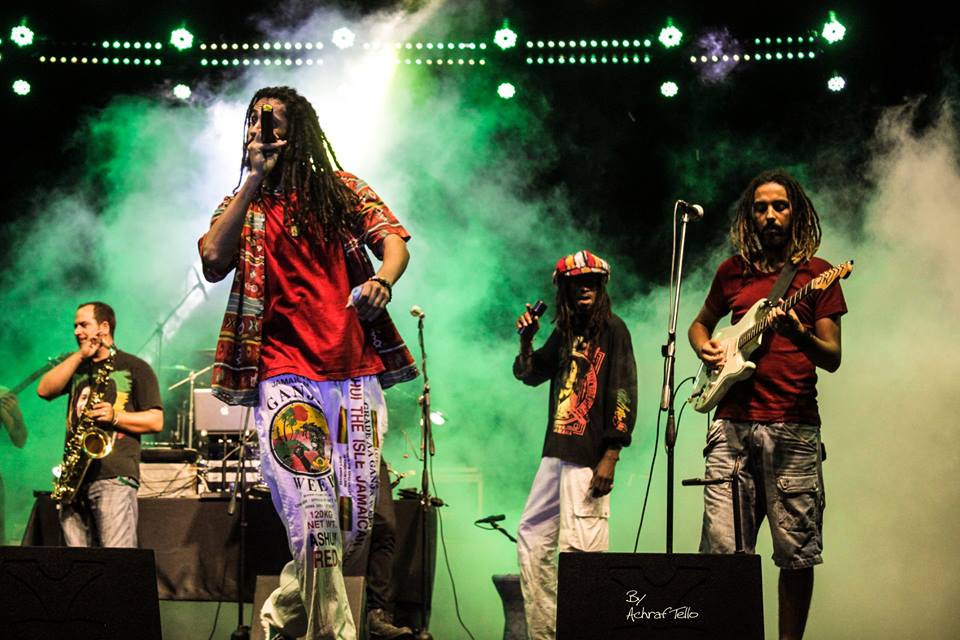
What is your hope for the future of Algeria and how do you think music can play a role in achieving this dream?
My wish is the wish of all Algerians who love this country- I dream to see an Algeria free and prosperous, an Algeria who doesn’t leave it’s children die at sea of rot in prison… an Algeria without fear, without regionalism, without lies.
Music has an incredible power- I always feel this when I sing Mazel. I’ve seen people cry and other scream. The next day, when I read the messages and comments from fans, I know that I can’t risk getting it wrong – because my role is to give hope through my voice as long as I have the chance to be on stage. Because music has magical powers.
my role is to give hope through my voice… because music has magical powers
mon rôle est de donner de l’espoir à travers ma voix … parce que la musique a des pouvoirs magiques
Quel est ton espoir pour le devenir de l’ Algérie et comment penses tu que la musique puisse jouer un rôle pour accomplir ce rêve ?
Mon souhait est le souhait de tous les algériens qui aiment ce pays, je rêve de voir une Algérie libre et prospère, une Algérie qui ne laisse pas ses enfants mourir dans la mer ni moisir dans les prisons. Une Algérie sans peur sans régionalisme sans mensonges.
La musique a un pouvoir incroyable, je le ressens toujours quand je chante Mazel. J’ai vu des gens pleurer et d’autres crier, quand je regarde les messages et les commentaires des fans le lendemain, je sais que je n’ai plus le droit à l’erreur parce que mon rôle est de donner de l’espoir à travers ma voix tant que j’ai la possibilité d’être sur scène. Parce que la musique a des pouvoirs magiques.
Ruby Boukabou
*Original interview in French
Purchase the album at a price that suits you- here!
Vous pouvez acheter l’album au prix qui vous va- ici!
Album Credits: Democratoz – Mazel
Produced by Yacine Bouaziz (Thala Films), Sadek Bouzinou
Label Rufftone Records, New York, USA
Studio Duga Duga Studio, Oran, Algeria
Engineered by Mehdi Benzarga, Hamza Deramchi, Randal Fethallah
Band: Fares Belchehb, Mehdi Bentouati, Mehdi Benzarga, Abderrahmane Boubaya, Sadek Bouzinou, Amine Malek, Abdelhalim Mokedem, Nassim Slimani
Guest musicians: Faycal Aliouane, Hocine Benameur, El Hadi El Hassar, Dounia Karsoussi, Raja Kateb, Younes Kati, Bensafir Lekhal, Mehdi Medaghri, Amine Naas, Yacine Tandjaoui
Contributions by Lamine Bouaziz, Jean Alain Roussel
Cover design Walid Mimouni
Photos: Achraf Tello & Fayçal Brahmi
Co-Financed by AFAC, the “Arab Fund for Arts and Culture”
Album Credits: Democratoz – Mazel
Producteurs Yacine Bouaziz (Thala Films), Sadek Bouzinou
Label: Rufftone Records, New York, USA
Studio: Duga Duga Studio, Oran, Algeria
Techniciens: Mehdi Benzarga, Hamza Deramchi, Randal Fethallah
Groupe: Fares Belchehb, Mehdi Bentouati, Mehdi Benzarga, Abderrahmane Boubaya, Sadek Bouzinou, Amine Malek, Abdelhalim Mokedem, Nassim Slimani
Musiciens invités: Faycal Aliouane, Hocine Benameur, El Hadi El Hassar, Dounia Karsoussi, Raja Kateb, Younes Kati, Bensafir Lekhal, Mehdi Medaghri, Amine Naas, Yacine Tandjaoui
Avec la contribution de Lamine Bouaziz, Jean Alain Roussel
Cover design Walid Mimouni
Photos: Achraf Tello & Fayçal Brahmi
Co-Financé par AFAC, the “Arab Fund for Arts and Culture”

